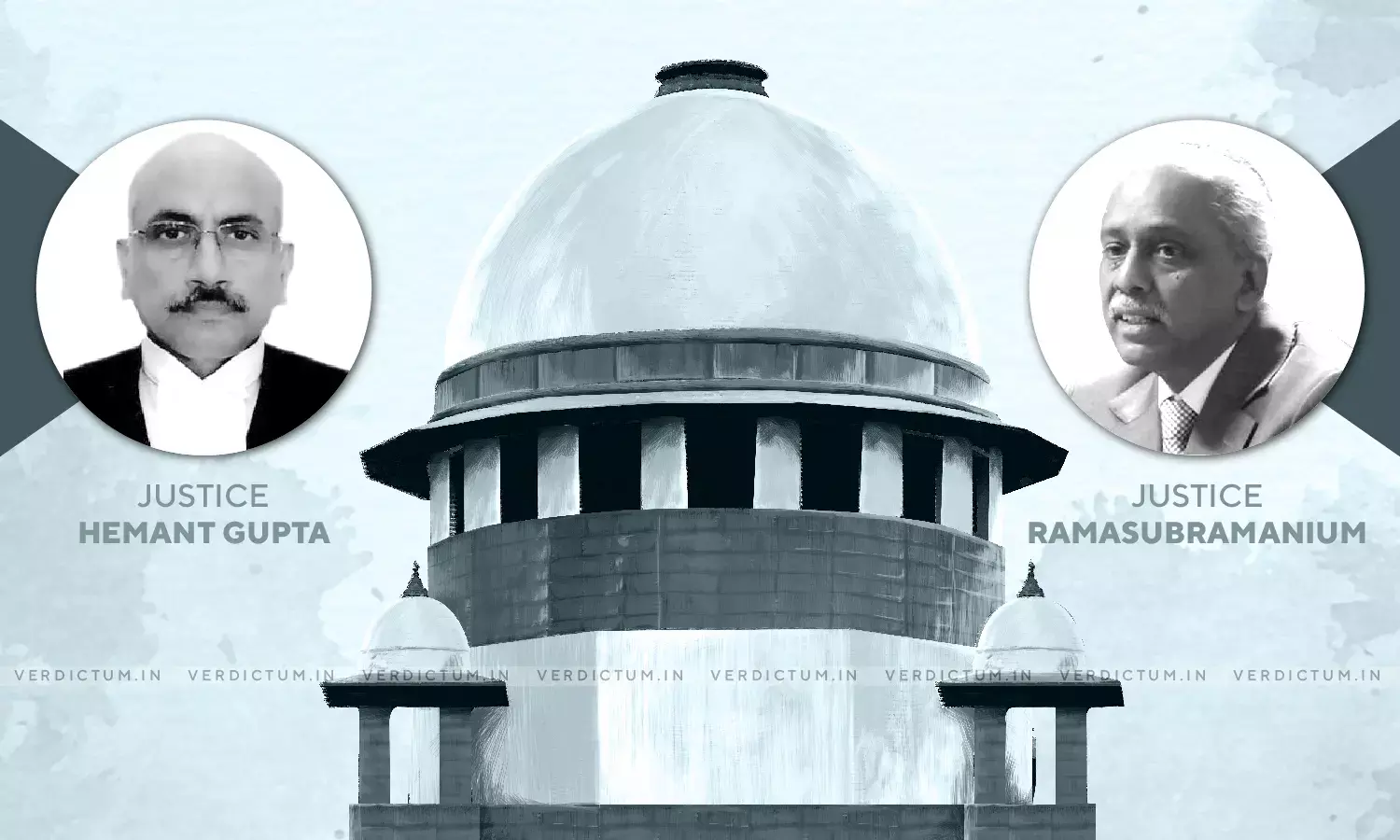Age Of Deceased Basis For Applying Suitable Multiplier To Determine Motor Accident Compensation - SC

A two-judge bench of Justice Hemant Gupta and Justice V. Ramasubramanium has observed the age of the deceased was the basis for applying a suitable multiplier and that the compensation was to be determined keeping in view the future prospects.
In this case, the deceased was riding a two-wheeler when a bus belonging to the Respondents dashed into his vehicle. The deceased suffered head injuries and died instantly. On the basis of income and age, the Motor Accident Claim Tribunal, Chennai awarded compensation of Rs.13,82,628/-. The Madras High Court affirmed the findings, however, enhanced the compensation under the conventional heads, so as to award a sum of Rs.15,12,628/- along with an interest @ 7.5% from the date of petition till the date of realization on account of the death of the deceased in a motor vehicle accident. The legal heirs of the deceased had challenged the impugned order passed by the Madras High Court before the Apex Court.
Counsel Vipin Nair appeared for the appellants while Additional Advocate General, Mr. Amit Anand Tiwari appeared for the respondents before the Supreme Court.
The primary issue in this case was –
- Whether the age of the deceased person in a motor accident be relevant while determining compensation?
It was contended by the Appellants that the multiplier was applied keeping in view the age of deceased and income at the time of death and not considering the remaining years of service. It was argued that if a person who died in an accident was 31 years of age and had 27 years of service left, the multiplier was not 28 years but keeping in view the judgment of this Court in Sarla Verma v. Delhi Transport Corporation, the age of the deceased at the time of death was the base for choosing a multiplier and not the years left in employment.
On the other hand, the Respondents contended the applicability of split multiplier i.e., multiplier up to the date of retirement and another multiplier after retirement as per the case laws of Kamlesh Devi v. Kitab Singh and Union of India v. K.S. Lakshmi Kumar.
The Supreme Court observed that in the case of National Insurance Company Limited v. Pranay Sethi, the Apex Court held that the age of the deceased was the basis for applying a suitable multiplier and that the compensation was to be determined keeping in view the future prospects. According to the Court, the judgments referred to by the Respondents were prior to the enunciation of law by this Court in National Insurance Company Limited v. Pranay Sethi, therefore such judgments no longer could be said to be good law as suitable multiplier was to be applied keeping in view the age of the deceased.
Thus, the Court opined that the method of determination of compensation which applied two multipliers was clearly erroneous and run countered to the judgment of this Court in National Insurance Company Limited v. Pranay Sethi which was affirmed by the judgment in Sarla Verma v. Delhi Transport Corporation. In this case, since the deceased was 54 years of age on the date of the incident, therefore, the suitable multiplier would be 11 as per the above judicial decisions.
Thus, the Supreme Court awarded the Appellants, a compensation of Rs. 24,33,064/- with interest @ 9% from the date of filing of the claim application till realization. Hence, the appeal was allowed accordingly.
Click here to read/download the Judgment

